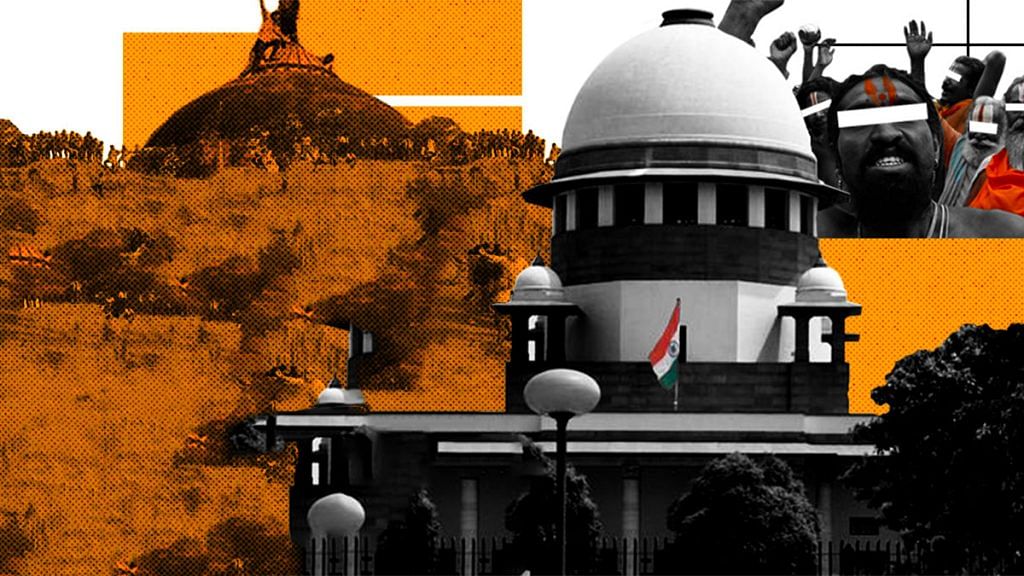The All India Muslim Personal Law Board’s review petition against the Supreme Court’s Ayodhya verdict will be both futile and imprudent. It is highly unlikely that the AIMPLB will succeed in getting the Supreme Court to reverse its unanimous judgment awarding the disputed land to Hindus for the construction of a Ram Mandir. To expect the Supreme Court to make any changes to a decision on such a sensitive issue and which involved the current Chief Justice of India is foolhardy.
The All India Muslim Personal Law Board (AIMPLB) should leave it to the Sunni Waqf Board (SWB), which was a party to the Babri Masjid-Ram Janmabhoomi title dispute, to decide whether a review petition should be filed and whether to accept the Supreme Court’s offer of five acres of land in Ayodhya for Muslims to construct a mosque.
Early media reports had indicated that the Waqf Board was inclined to accept the verdict as well as the offer of land. However, in a statement on 15 November, the Waqf Board chairman Zafar Ahmad Farooqui said: “Though AIMPLB was not a party in the Ayodhya case, it would be right to give importance to its views as it is the supreme body of Muslims in the country”.
Also read: Muslim law board’s move to file review plea against Ayodhya verdict splits community
AIMPLB’s overreach
It will be imprudent for the Waqf Board to give in to the AIMPLB’s demands for several reasons.
First, the AIMPLB was not a party to the Ayodhya litigation and has no locus standi in the matter.
Second, despite its claim to the contrary, the AIMPLB does not represent the sentiment of the Muslim community at large. It is certainly not “the supreme body of Muslims in the country”. In fact, it is far from being a genuine representative of Muslim opinion because it is dominated by self-selected clerics and irresponsible politicians like AIMIM president Asaduddin Owaisi who are often antediluvian and self-centred in their approach to social and political issues affecting India’s Muslims.
Third, interfering in sensitive matters such as the Ayodhya dispute was never a part of the AIMPLB’s brief when it was set up in 1973. A group consisting mostly of clerics established it to counter the demand for a Uniform Civil Code. Whether one agrees with the AIMPLB’s views on the subject or not, it is clear that it was established only to prevent a uniform civil code from supplanting Muslim Personal Law. Over the years, the AIMPLB has exceeded its brief and dabbled in various issues that it had no right to. Its attempt to interpose itself in the Ayodhya dispute is the latest example of this approach.
Also read: Why Mathura or Varanasi temple disputes won’t go the Ayodhya way
Why a review petition mustn’t be filed
Giving in to the decision of the AIMPLB and filing a review petition against the Ayodhya verdict will be politically counterproductive. It can be argued, and many people have done so eloquently that the Supreme Court’s decision was full of internal contradictions. These incongruities were evident in light of the fact that the Supreme Court, while accepting the illegality of the installation of idols inside the Babri Masjid in 1949 and the demolition of the mosque in 1992, rejected the claim that it was a mosque.
However, in the final analysis, the Ayodhya dispute was not merely a judicial issue but also one of significant political import. Any other decision could have led to serious breach of peace and loss of life and property. In view of this contingency, for Muslims to accept the Ayodhya verdict gracefully would be an act of great prudence. Otherwise, the community could be blamed for any mayhem that may ensue.
This conclusion is strengthened by the fact that the Ayodhya judgment makes specific reference to the Places of Worship Act, 1991, which makes it mandatory that the character of all other places of worship must be maintained exactly as it was on 15 August 1947, thus precluding challenges, especially, to the mosques in Kashi and Mathura. Asking for a review of the decision could bring into question this part of the judgment as well.
The author is University Distinguished Professor Emeritus of International Relations, Michigan State University. Views are personal.
